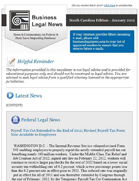


South Carolina & Federal Trademark Attorney
Serving Columbia, Greenville, and Charleston SC, and other locations
 As attorney with our firm can assist you in registering and protecting your trademarks and service marks.
As attorney with our firm can assist you in registering and protecting your trademarks and service marks.
Reason for Protection
Trademarks and service marks permit consumers to identify the source of goods or services. The purpose of trademark law is to ensure that consumers are able to rely on marks in exercising their purchasing preferences by prohibiting competitors from using marks in a way that confuses consumers. Ensuring that trademarks accurately identify the source of goods or services benefits businesses by helping them create and protect business good will. Use of trademarks and service marks are subject to common law (unfair trade practices), state statutory law, and federal law (the Lanham Act).
General Requirements
Before something can be recognized and protected as a mark, it must be: (1) distinctive and not generic, (2) used in the ordinary course of trade (not just nominally used or sold), and (3) used in close and regular connection with the good or service.
Distinctiveness
Marks are often categorized according to their distinctiveness. Highest in the hierarchy are arbitrary and fanciful marks (Blue Diamond® for peanuts, and Green Leaf for insurance are arbitrary marks)(Exxon® and Xerox® are fanciful makes) and suggestive marks which are deemed inherently distinctive (Best Buy®, Greyhound®, Coppertone® for suntan oil, Roach Motel® for insect traps). Lower in the hierarchy are descriptive marks (The Real Yellow Pages®) and surname marks (Edward Jones®, Charles Schwab®), which are not viewed as inherently distinctive, and can only be protected if they have attained secondary meaning in the market place. Secondary meaning is attained when, due to exposure to the mark in the market place, the relevant consuming public views the mark not in its primary, descriptive or surname sense, but as an indication of the source of the product or service. Generic marks (Carolina Bagel Bakery & Café) are incapable of becoming distinctive and cannot have ownership rights to them, nor can marks that are scandalous or immoral, or deceptive.
Common Law
Trademark users have certain protections under common law principles of unfair trade practices. Under common law, the first user of a mark is the owner of it. However, if a second party later uses a confusingly similar mark in a remote geographic area in good faith (with no notice of the earlier use of the other mark that is ongoing in the U.S.) the second party will have superior rights in the mark in that remote geographical area (known as a “good faith defense”).

State Registration
On the state-level, registration is generally done with the applicable Secretary of State. Protection is generally limited to the State. Not all Secretary of State offices perform any due diligence to determine whether use of the official name of the business is infringing on the trademark or service mark of others. Nor do applicable Secretary of State Offices generally perform a search against federal or other state registered marks upon when processing applications. Duediligence is generally left to the applicant to perform.
Federal Registration
To register a mark federally, the mark must not only be (1) distinctive and not generic, (2) used in the ordinary course of trade (not just nominally used or sold), and (3) used in close and regular connection with the good or service, but it must have been (4) used in interstate commerce (often easily satisfied by sales to out of state individuals or individuals involved in interstate travel, use of shipping services with hubs outside of South Carolina, or acceptance of credit cards for payment).
Registration on the Principle Register of the United States Patent and Trade Mark Office (USPTO). Registration on the Principle Register of the USPTO provides: (1) a right to assistance from U.S. Customs in preventing infringing goods from entering the country; (2) presumptions of mark ownership and validity and, after five years of registration, preclusion of certain challenges or defenses to the mark; and (3) rights in the mark in a greater geographical area than would be possible under common law.
There are two alternative routes a person may follow in applying to register a federal trademark. First, a person who has already satisfied the threshold requirements of distinctiveness, use in trade, close and regular connection with the good or service, and used in interstate commerce may file an application with the USPTO. The USPTO will examine the applications and publish it for opposition. If there is no successful opposition, the USPTO will register the mark and issue a certificate of registration. Second, a person may file an application alleging a bona fide intention to use the mark in trade and interstate commerce. The USPTO will make an initial examination of the applications and publish it for opposition. If there is no successful opposition, the applicant will have sixmonths, renewable up to two-and-a-half years, to make the necessary use in trade and commerce and file a statement of use with the USPTO. After the statement of use is filed, the mark can be registered and a certificate of registration can be issued.
Marks registered on the federal level are indicated by the ® symbol.
Under federal law, trade dress, such as the product’s shape, a striking colorful background design on the product or its packaging, or even the distinct design and décor of retail chain or franchise, may be protected as a mark if it makes a separate commercial impression and is capable of identifying or distinguishing the product.
Trademark Dilution Act of 1995
Under the Trademark Dilution Act of 1995, which became law in 1996, the owner of a "famous" trademark can now stop someone from using its trademark if it tends to weaken, blur or tarnish the famous mark. Unlike traditional trademark law, which still applies, with trademark dilution you do not have to show any likelihood of confusion over the source or sponsorship of the goods or services.
Trademark Protection Recommendations
Communicate with an attorney experienced in trademark matters to determine whether any critically important trademarks and service marks used by your business are candidates for trademark protection. These might include:
Prior to using any trademark, perform due diligence to ensure the business does not infringe on the marks of others. Such due diligence might include:
Get answers now to your important legal questions and concerns.

By using this website, you agree to read the important legal notices and disclaimers and be bound by the terms and conditions set forth in the Legal Disclaimer section and other sections of this website. Should a dispute arise with regard to your use of the contect of this website, you expressly agree to be subject to the the jurisdiction of the State of South Carolina
Small Business Law Firm, LLC
Serving South Carolina: Columbia(main office), Charleston, Greenville(satellite office appointments by prior agreement & by virtual services), other SC Locations (virtual services only)

Follow us